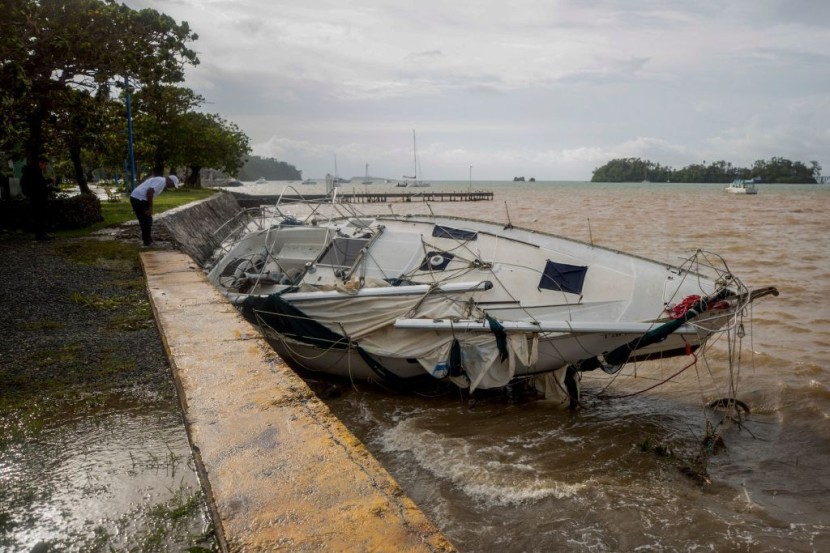
Although deadly Hurricane Fiona has marginally lessened in strength to a Category 3 storm, it is still carrying 125 mph winds as it heads toward Canada's Atlantic coast.
According to the National Hurricane Center, it will deliver hurricane-like conditions to the area Friday night.
Hurricane Fiona Seen Intensifying
Forecasts from the Canadian Hurricane Center states that it's expected to be a "extreme weather event" across eastern Canada, posing threats of strong winds, a hazardous storm surge, and around two months' worth of rainfall. According to the center, several regions, including the Canadian Maritimes, would probably start to experience its affects on Friday evening.
According to Chris Fogarty, manager of the Canadian Hurricane Center, "this might be a landmark occurrence for Canada in terms of the severity of a tropical cyclone," and it might even turn into Canada's Superstorm Sandy. Damage from Hurricane Sandy, which impacted 24 states and the entire east coast, was estimated to be worth $78.7 billion, CNN reported.
Officials from Canada's Nova Scotia and Prince Edward Island warned citizens in the storm's path to be on high alert and get ready for its effects. This week, as the hurricane pounded several Caribbean islands, it has already claimed the lives of at least five people and cut electricity to millions of people.
After crossing the Turks and Caicos early on Wednesday, Hurricane Fiona grew to a Category 4 storm over the Atlantic, where it stayed until Friday afternoon. The US National Hurricane Center predicts that hurricane conditions may start in Atlantic Canada late on Friday, therefore a hurricane warning is in force for Nova Scotia, Prince Edward Island, The Magdalen Islands, and the coast of Newfoundland.
Hurricane Fiona, a Category 4 storm right now, is anticipated to lose some strength on Friday. As the storm sweeps over northeastern Canada, the hurricane center continues to predict it to be a "large and powerful post-tropical cyclone with hurricane-force winds," posing a threat of substantial coastal flooding and 3 to 6 inches of rain, with local maximums of up to 10 inches in certain regions.
Read Also: Migrant Crisis: Heartbreaking Photo Shows Innocent Victims of Current Situation on Southern Border
Rare Hurricane Warnings Issued in Canada
According to AccuWeather, portions of Atlantic Canada could experience "dangerous storm surges, destructive hurricane-force winds, and life-threatening floods." Dave Pickles, chief operating officer of the utility Nova Scotia Power, said that widespread power disruptions are also anticipated.
Hurricane Fiona had maximum sustained winds of 130 mph and was situated 475 miles south of Halifax, Nova Scotia, on Friday afternoon. The storm was moving 35 mph toward the northeast.
The Dominican Republic and Puerto Rico were among the Caribbean nations affected by the hurricane before it reached Bermuda. The effects of Hurricane Fiona extended to the Turks and Caicos Islands. Per USA Today, Hurricane Fiona was dubbed a "historic storm for eastern Canada" and a "perhaps unprecedented weather event" by the Canadian Hurricane Center.
In Canada, where many storms diminish as they approach colder seas, hurricanes are very uncommon. Hurricane Fiona "will probably be the most intense storm on record," according to AccuWeather meteorologists, based on the size of the wind gusts.
The Cape Breton Regional Municipality's Amanda McDougall said workers were setting up a shelter in advance of the storm. Early on Friday, Hurricane Fiona battered Bermuda with strong winds and rain as officials halted schools and established shelters.
The National Hurricane Center predicts that Bermuda will continue to see "large and damaging waves" on Friday. The National Oceanic and Atmospheric Administration reported waves of roughly 50 feet on Thursday, indicating that Hurricane Fiona had already produced enormous waves as it reached the island.
Related Article : Biden Assures All Out Help For Hurricane-Hit Puerto Rico: 'We're all in this together'
@YouTube
© 2026 HNGN, All rights reserved. Do not reproduce without permission.








